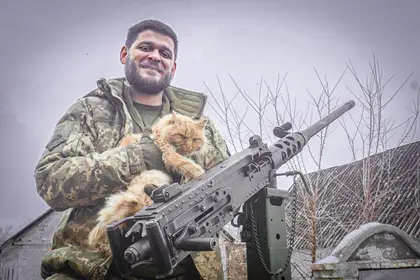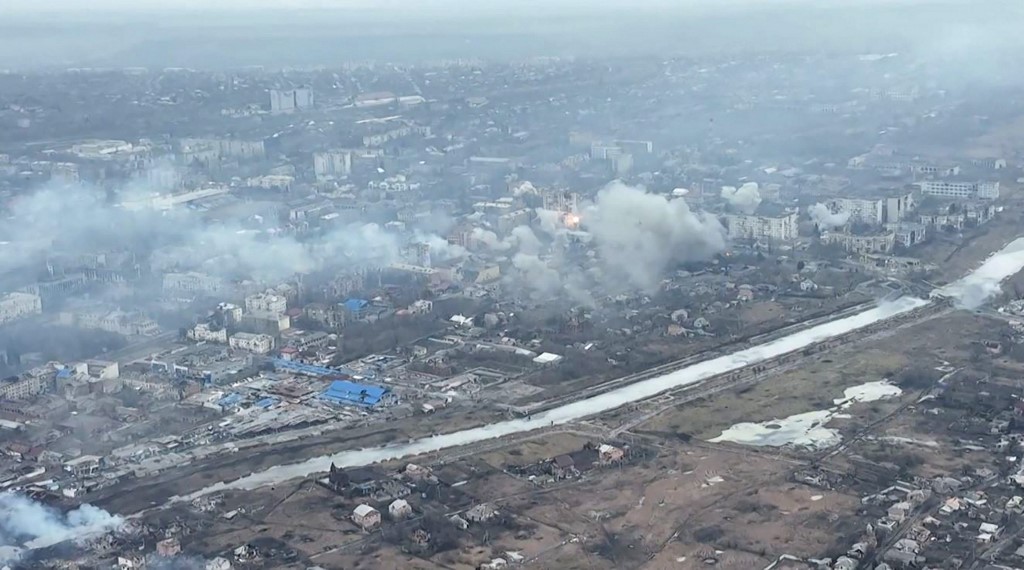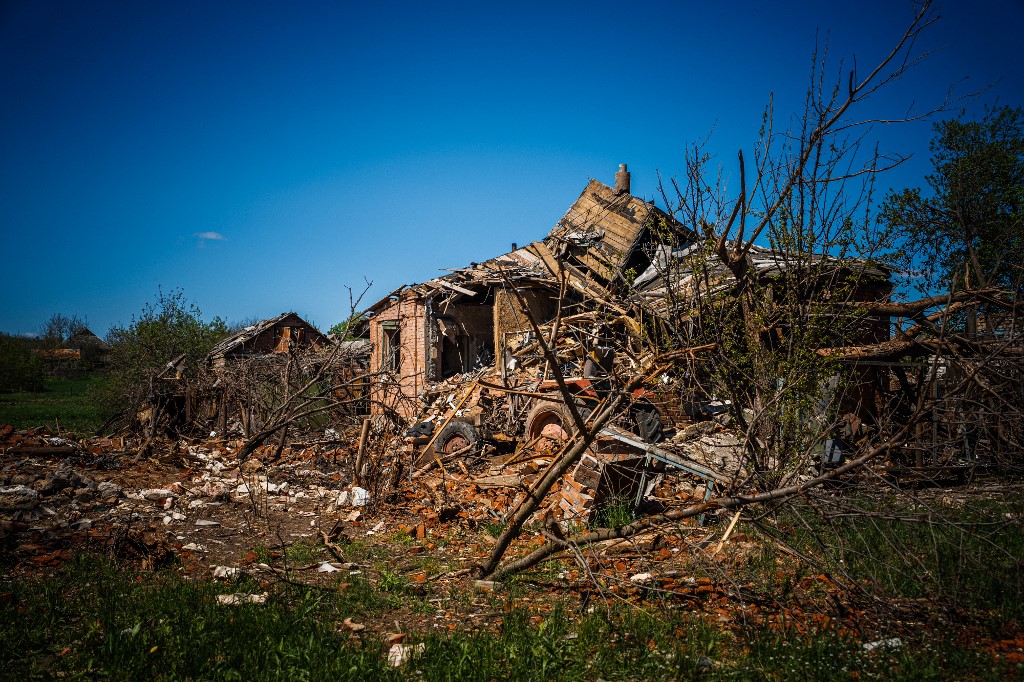As the world awaits Kyiv’s counteroffensive, much attention has focused on its timings and which western-supplied weapons will make it to the front in time to help push Russia’s forces out of occupied Ukraine.
JOIN US ON TELEGRAM
Follow our coverage of the war on the @Kyivpost_official.
Yet all those tanks, armored vehicles and boxes of ammunition would be useless without the Ukrainian soldiers preparing to use them as they face up to the monumental task ahead.
Tanker Ivan tells Kyiv Post that after a year of fighting Russia’s full-scale invasion, Ukraine’s troops have “gotten used to” being at the front, but the prospect of the counteroffensive is still daunting despite the experience many of them have gained.
“I'm a little nervous about whether I'll be able to cope with the task,” Ivan tells Kyiv Post. “I don’t want to let my combat brothers down and I am worrying about this a lot.”
Regardless, Ivan is defiant and knows he and his “combat brothers” have no other choice.
“Our mood is fighting,” he says. “We did not come to conquer; they came to conquer us.
“We have no way out but to defend ourselves and win back our land.”
Winning back the land taken by Russia is a formidable task. Aside from the ongoing battle for Bakhmut, there has been a lull over the winter along much of the front lines which Russian forces have taken advantage of to dig in and take up strong defensive positions.

Zelensky Meets CIA Director William Burns in Ukraine
Last month, Andriy Usov, a Ukrainian army military intelligence specialist told Kyiv Post that the Russian army has halted practically all offensive operations across the entire front line, to focus its manpower and equipment on building fortifications.
In the Zaporizhzhia sector, where the Kremlin most expects heavy Ukrainian armored attacks, Russian forces have constructed three major defensive belts of entrenchments and minefields.
Some trench-lines, particularly in the vicinity of the key road and rail nexus city of Tokmak, extend for dozens of kilometers along high ground, with prepared bunkers built at highway intersections, dragons’ teeth concrete pyramids barriers crossing farm fields and anti-tank ditches.
Breaking through
Taking and breaking through Russian defensive positions will inevitably lead to heavy losses on the Ukrainian side, something obviously at the forefront of the minds of those tasked with doing it.
“We understand that, if we advance, our casualties will increase,” Ilya*, a soldier in the Donetsk region tells Kyiv Post, adding: “Our battalion took part in a counteroffensive in the Kharkiv region, and our losses there exceeded 40 percent.”
His thoughts are echoed by Dmitri*, a recently recruited soldier currently stationed in the north of the country.
“Being on an offensive means to risk more than usual,” he says. “Everyone is anxious and scared for their lives here. It's normal and we talk about that quite often.
“I've met very few natural warriors since I've been here, and even they say that it's OK to feel scared sometimes.”
Vadim, a grenadier, acknowledges that “everyone thinks about death”, but thinking about it every day is “unnecessary and distracting.”
“I am not afraid to die painfully,” he says. “When I was on combat missions, I tried not to think about death at all. My attitude was simple: wake up in the morning and live until the evening.
“If you are distracted by thoughts of death, it will lead you astray.”
Vast equipment and high morale
Ukraine’s counteroffensive will largely rely on vast amounts of military equipment supplied by its western partners, including more than 230 tanks and more than 1,550 other vehicles as of last month.
This, combined with months of planning, will allow Ukraine to launch combined arms operations – coordinated action by armor, infantry, engineer, artillery and air forces – that will try and break the formidable defenses constructed by Russia.
Mark Cancian, a senior adviser at the Center for Strategic and International Studies, told AFP: "The Ukrainians are going to have to crack through that front line in order to get all of this new armor that they have... past the fortifications into open country."
Another major factor in Ukraine’s favor is morale – on the Russian side it is extremely low and no amount of digging in, laying mines and building tank traps will help the Kremlin’s forces if the soldiers manning these defenses are not committed to the fight.
Recent evidence of Russia’s ongoing problems of finding sufficient numbers of men to defend fortifications surfaced earlier this month. A group of former security guards, from the Russian energy company Gazprom, published a public video in which they claimed they had volunteered to perform rear area protection duties in Ukraine. Instead, they found themselves turned over to Wagner mercenaries who forced them, at gunpoint, to deploy to front line positions in the Bakhmut sector, with minimal weapons and ammunition.
On the Ukrainian side however, morale is extremely high. “The mood is great,” Vadim tells Kyiv Post.
“We have been waiting for this for a long time and have been preparing, so we are all inspired and ready to meet these bastards.”
And whereas many Russian troops are being forced to fight for the Kremlin, those fighting against them are there by choice and are motivated so much more.
“I had planned to spend my life differently,” says Vadim. “But Muscovites stole my second spring. My best friend Kyrylo Babentsov, call sign ‘Cobra’, passed away, and my mother died due to failing health after the full-scale invasion. I wasn't able to spend her last days with her.
Dmitri echoes these thoughts, saying: “It's everyone's choice to be here.
“The general purpose is to overcome your fears and do something meaningful in your life, [and to] live a useful life for the people and families that stayed behind.”
*Some names have been changed.
You can also highlight the text and press Ctrl + Enter








